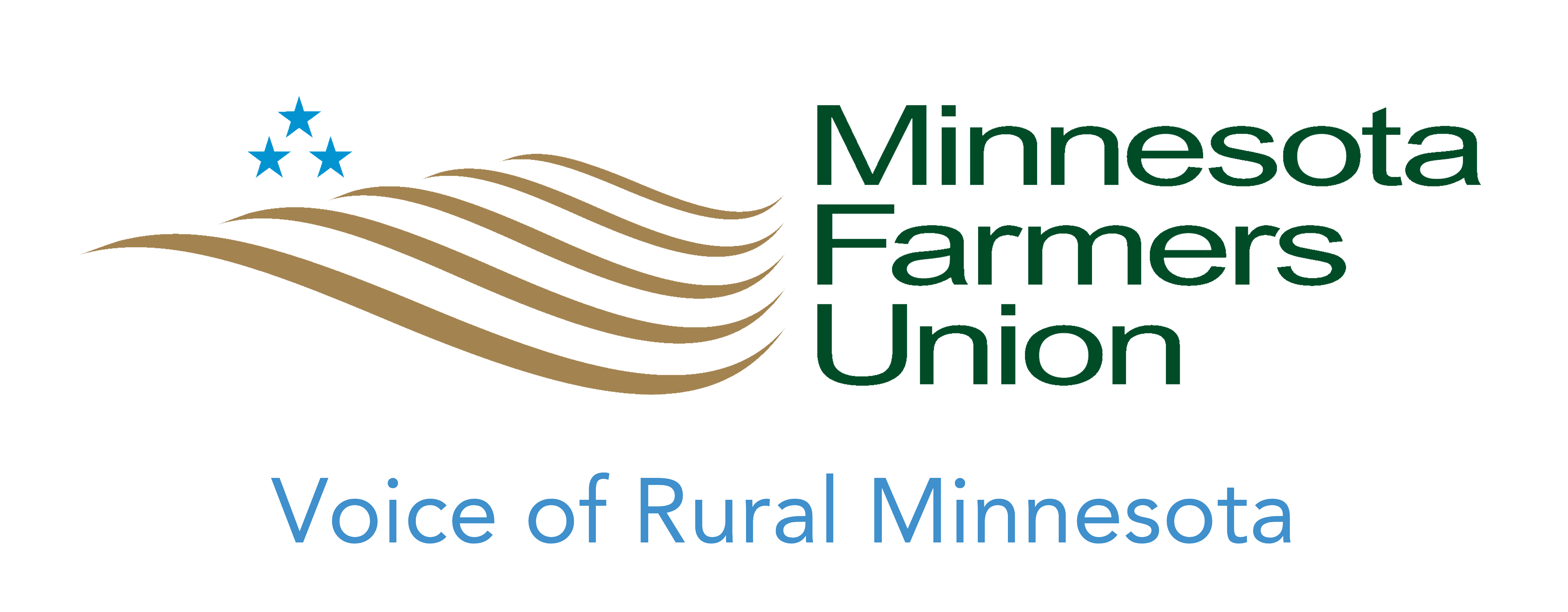Legislative update: Final week with far to go
Less than six days remain in the state legislative session and a final deal on many priority items remains out of reach. That said, conference committees are meeting across many of the jurisdictions, adopting compromise positions and the caucuses are in public negotiations over a deal to deliver the needed minority votes on a bonding bill.
As described in last week’s update, Chair Aric Putnam’s, DFL-St. Cloud, and Chair Samantha Vang’s, DFL-Brooklyn Center, supplemental agriculture omnibus bills were combined with those for commerce—which includes the MinnesotaCare Public Option—and energy—which includes a large effort around energy permitting reform. These were all united under a ‘super omnibus’ (SF4942).

Chair Samantha Vang’s ag bill passed as part of the join ag, energy, commerce omnibus on May 9.
On May 13, conferees for the agriculture, commerce, and energy omnibus were named:
- Chair Nick Frentz, DFL-Mankato
- Chair Patty Acomb, DFL-Minnetonka
- Sen. Aric Putnam, DFL-St. Cloud
- Sen. Gary Dahms, R-Redwood Falls
- Sen. Matt Klein, DFL-Mendota Heights
- Sen. Tou Xiong, DFL-Maplewood
- Rep. Samantha Vang, DFL-Brooklyn Center
- Rep. Kristi Pursell, DFL-Northfield
- Rep. Zack Stephenson, DFL-Coon Rapids
- Rep. Larry Kraft, DFL-St. Louis Park
You can find committee documents and side-by-side comparisons here. MFU submitted written comments to the committee addressing the full package. More specifically, they call on committee members to craft a final deal that:
- Moves forward on the MinnesotaCare Public Option to allow farmers and other small business owners to ‘buy-in’ to the quality coverage provided to lower income Minnesotans. “We believe strongly that everyone deserves affordable, comprehensive health coverage and that moving forward with implementing the MinnesotaCare Public Option is the next big step for our state,” said President Gary Wertish in his letter to committee members, highlighting how healthcare costs effect farmers in particular.
- Addresses the shortfall in AGRI, ensuring that this important program can continue to serve farmers well into the future. Work on farm-to-school, meat processing, biofuels infrastructure, and beginning farmers programs are all funded out of Agricultural Growth Research Investment (AGRI) program, which faces a shortfall next year. It’s also the fund that allows MDA to respond quickly to urgent challenges. “AGRI is central to how MDA shows up to support family farmers and others working to make our agriculture economy more vibrant and diversified, and it’s a critical tool for managing the unexpected,” Wertish said in his letter. “Thank you for prioritizing this funding as this proposal moves through conference.”
- Addresses nitrates in groundwater, ensuring that everyone has access to safe drinking water and helping farmers in making voluntary investments in soil health. In the bills, MFU shared support for:
- Investing in reverse osmosis systems and upgrading private wells to ensure that residents in southeast Minnesota have access to clean drinking water quickly.
- Soil health equipment grants to help farmers invest in equipment and implement new practices. MFU’s letter pointed out that these practices are a “win-win as they often improve profitability and help farmers meet their goals to retain topsoil, hold water, and deliver ecosystem services.” The letter also shared concern about provisions that would prevent farmers from renting or leasing their equipment to neighbors, which can help smaller farmers compete for these funds and extend those practices over more acres.
- Ensuring future investment in fertilizer research through extending the Agricultural Fertilizer Research Education Council (AFREC), which was repurposed in the House proposal.
- Supports new and emerging farmers by ensuring that the Down Payment Assistance program and others are sustainable and will continue to help new farmers build a life in agriculture.
- Supports the next generation of meat cutters by providing competitive grants to secondary schools to purchase supplies and equipment, do limited renovations, and gain professional development needed to stand up meat cutting courses.
- Increasing farm to school and early care funding to help farmers access new markets and ensure young people have access to healthy, nutritious meals that aid their learning. The bill is also poised to expand this program to home-based daycares.
- Protects poultry farms from High Path Avian Influenza by discouraging wild birds from interacting with domestic flocks using “turkey lasers” and other deterrents.
- Funds a land trends report which will help the legislature better understand and craft responses to the dynamics leading to skyrocketing land values that squeeze out new farmers and make it harder for families to transition land to the next generation.
- Limits on confidentiality clauses to ensure that farmers have transparency in marketing and processing contracts.
- Establishes a corporate farm law reporting portal, which will streamline enforcement of Minnesota’s longstanding ban on corporate and foreign ownership of farmland.
- Expands Beginning Farmer Equipment and Infrastructure grants to help this new program support more beginning farmers as they build their businesses.
- Funds AURI small food entrepreneur support to help more food businesses start-up and scale, promoting the use of Minnesota grown farm products.
- Supports farmers markets across the state by allowing them additional flexibility with funds that will ensure that more markets implement SNAP and EBT.
- Expands the use of higher-octane, cleaner-burning biofuels, including through upgrading the infrastructure at fuel retailers across the state by expanding the use of biofuels infrastructure grants.
- Funding elk depredation and a cervidae crop damage report, both of which will help farmers whose crops and infrastructure are being damaged or destroyed.
Conference committee meeting
Today, the conference committee met to review some agreed upon agricultural provisions including strengthening Minnesota’s ban on confidentiality clauses in ag production contracts. But the vast majority of the items prioritized by MFU this session have yet to be publicly addressed.
During that meeting, Chair Acomb said that commerce provisions in the bill were being moved to the cannabis omnibus package, signaling that some are worried about the future of the ag, energy, commerce bill. That said, there’s a long time before Monday. While the committee is in recess, chairs are working to negotiate a deal.
In the tax committee, Chair Ann Rest, DFL-New Hope, and Aisha Gomez, DFL-Minneapolis, are trading offers and adopting consensus positions. Welcome news for MFU, one of the first provisions they agreed to was a proposal we brought forward that would allow small market farmers to qualify for the ag homestead tax credit. Under the proposal, which is now likely to find its way to the governor’s desk, farmers who farm less than 11 contiguous acres could present their assessor with a Schedule F showing at least $5,000 in farm income or a plan from a certified farm financial management instructor, showing their intent to earn at least that amount. This follows successful work from MFU, the Minnesota Pork Producers, and others to expand the upper limit of the credit last session to keep pace with skyrocketing land values.
Bonding bill
Central to end-of-session negotiations is the bonding bill, which requires a 60 percent majority vote in both bodies. This means that agreement is required from all four caucuses to get a bill passed. On Tuesday, Chairs Sandy Pappas, DFL-St. Paul, and Fue Lee, DFL-Minneapolis laid out a $330 million list of proposed local projects.
The minority in the Senate has yet to put forward an alternative list of projects, though Republican Senate Leader Mark Johnson, R-East Grand Forks, did put out a list of demands for his caucus to put up votes on a bonding package. Notable for MFU, these included halting work on a MinnesotaCare Public Option.
MFU weighed in with support for First District Association dairy cooperatives bonding request to help pay for needed wastewater treatment upgrades in Litchfield.
“This project is important to our members who are among over 600 farms who rely on First District to market their milk, the vast majority of whom are smaller than average sized farms,” Wertish wrote to the bonding committee. “Beyond those who are served by First District, a potential shutdown could lead to an oversupply of milk, further depressing prices or leading to farmers dumping milk and shouldering significant losses.”
Work is moving quickly and by the next update we’ll know what happened (or didn’t!) during the 2024 legislative session. As always, if you have questions, thoughts, or concerns, please reach out at stu@mfu.org or (320) 232-3047 (C).
